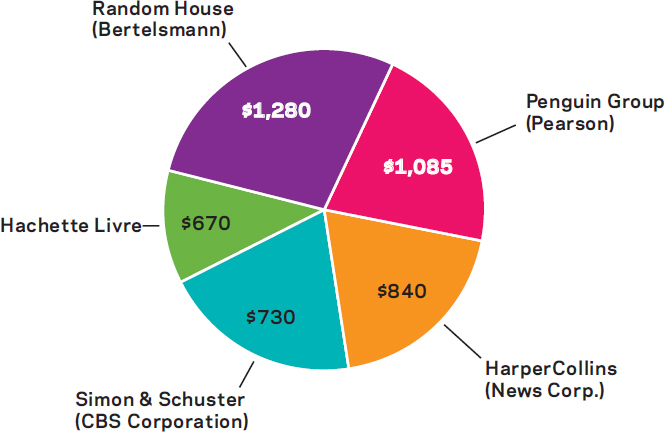The Conglomerates
Printed Page 41
Book publishing sputtered from the 1910s into the 1940s, as the two world wars and the Great Depression turned Americans’ attention away from books. But as the U.S. economy recovered during the 1950s and 1960s, the industry bounced back. Major corporations and international media conglomerates began acquiring the smaller houses to expand their markets and take advantage of the synergy (the promotion and sale of different versions of a media product across the various subsidiaries of a conglomerate) between books and other media types.
Nowadays book publishing is dominated by a handful of these giants. For example, the CBS Corporation owns Simon & Schuster and its imprints, including Pocket Books; and News Corp. owns HarperCollins and all of its imprints, including Avon (see Figure 2.1 below). The largest of the publishing conglomerates is Germany’s Bertelsmann. This company controls about one-third of the U.S. trade book market. (Trade books are sold in bookstores and constitute about 10 percent of the total U.S. book market.) Through its focused acquisition strategy, Bertelsmann has become the world’s largest publisher of English-language books.4
The consolidation of the book industry has raised concerns among observers who mourn the loss of the older houses’ distinctive styles and their associations with renowned literary figures like Mark Twain and Nathaniel Hawthorne. Moreover, the large corporations that now define the industry’s direction can buy needed resources (such as paper, printing, and binding services) at a discount and thus charge less for their product. They also have huge marketing budgets. Few independent publishers have been able to compete against them, which ultimately has reduced the range of books now available to consumers.
